MercoPress. South Atlantic News Agency
Tag: Latin America
-
Tuesday, September 11th 2018 - 14:57 UTC
Hunger increases and affects 39 million people in Latin America
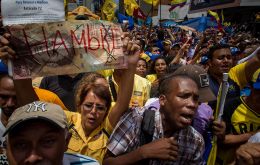
Hunger reached 821 million people in 2017 worldwide, of which about 39 million are Latin American, according to the UN Food and Agriculture Organization (FAO). The figure represents a deterioration of 6.1% in Latin America and the Caribbean compared to previous years and could be due to the economic slowdown in South America, especially marked by the case of Venezuela, the UN agency said on Tuesday.
-
Friday, September 7th 2018 - 09:22 UTC
Latin American countries will receive Venezuelan migrants even with expired documents

Eleven Latin American countries say that they have agreed to allow Venezuelans leaving their homeland to enter their countries even if their travel documents have expired. More than 2.3 million Venezuelans have fled the country's hyperinflation and severe shortages, but many do not have valid passports because renewing them can take years.
-
Tuesday, September 4th 2018 - 08:41 UTC
Brazil's Real and Argentina's Peso slumped on Monday
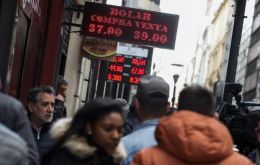
The Brazilian Real slumped on Monday as mounting concerns over this year's presidential election added to global risk aversion, while the Argentine peso extended a recent sell-off that also spread into stock markets in Latin America.
-
Monday, September 3rd 2018 - 19:17 UTC
Macri admits the seriousness of the situation and Dujovne is off to meet with IMF

President Mauricio Macri unveiled plans on Monday to raise export taxes on grains and slash the number of government ministries in a bid to balance its budget next year, as Argentina seeks a deal with the IMF to accelerate a US$ 50 billion standby loan program.
-
Friday, August 31st 2018 - 09:08 UTC
Brazil: Alckmin unveils campaign ad targeting far right adversary Jair Bolsonaro

Brazil’s business-friendly presidential candidate Geraldo Alckmin unveiled a campaign ad against gun violence on Thursday that targeted his far-right pro-gun adversary Jair Bolsonaro.
-
Friday, August 31st 2018 - 09:01 UTC
Unemployment in Brazil falls slightly in July to 12.3%
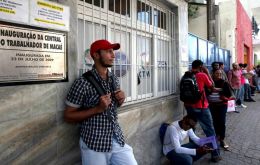
Brazil's unemployment rate dipped slightly in July, as expected, extending a slow and bumpy labor market recovery as pivotal presidential elections loom.
-
Wednesday, August 29th 2018 - 08:33 UTC
Brazilian currency down on presidential election forecast jitters
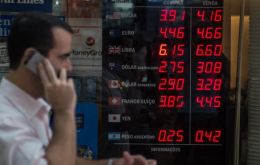
The Brazilian Real led losses in Latin America as lingering concerns over presidential elections overshadowed a largely positive environment for emerging market assets. The US dollar ended trading at 4.333 Reales.
-
Friday, August 24th 2018 - 09:06 UTC
Latin American growth lowered to 1.5% this year, in a “complex global scenario”

Latin America's economic growth is set to come in lower than expected this year, as US protectionism and widespread wariness of emerging markets put a drag on the region, a UN panel said Thursday. The Economic Commission for Latin America and the Caribbean (ECLAC) slashed its growth forecast for the region by 0.7 point to 1.5%, saying the “complex global scenario” had dimmed the outlook since its last report in April.
-
Thursday, August 23rd 2018 - 09:12 UTC
The democratic challenge to dictatorships and xenophobia in Latin America
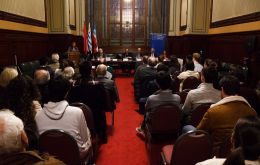
During the conference entitled “The democratic challenge to the autocracies of the 21st century in Latin America,” organized by the Center for the Opening and Development of Latin America (CADAL) on Tuesday at the Senate of Uruguay, the Government of Venezuela was described as a “dictatorship” and it was exhorted that the democratic governments of the region, especially the Uruguayan government, not be indifferent or “accomplices” against today’s Latin America’s autocratic governments.
-
Sunday, August 19th 2018 - 18:26 UTC
Complications for the diaspora: Venezuelans can only flee with a passport to Peru or Ecuador
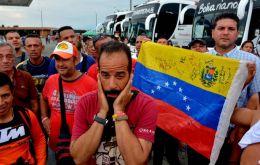
The Ministry of the Interior of Peru has announced that as of the dawn of next Saturday, August 25, Venezuelans will be required to present their passport to be admitted to the country. This measure coincides with that taken by Ecuador this week when it reached record figures in the entry of Venezuelan citizens in that country. The National Superintendency of Migrations of Peru recorded last Saturday the largest number of Venezuelan citizens who entered the country in a single day: more than 5,100.
